By Sharon Atieno Onyango with Ogova Ondego
Published December 11, 2015
![Elkana Ongesa, veteran Kenyan sculptor at visual arts mentorship at Nairobi Gallery]() A two-day pilot programme aimed at developing both the creative process and professional skills of emerging visual artists while giving their more established counterparts the opportunity to pass on their experience, resources, knowledge, and insight has just ended in the Kenyan capital, Nairobi.
A two-day pilot programme aimed at developing both the creative process and professional skills of emerging visual artists while giving their more established counterparts the opportunity to pass on their experience, resources, knowledge, and insight has just ended in the Kenyan capital, Nairobi.
RELATED:Artists in Residency Shortlists Participants as Nairobi Museum Examines Identity
Held at Nairobi Gallery in the central business district of the Kenyan metropolis, the pilot programme targeted 25 participants and was held December 3-4, 2015.
The first day was devoted to Painting and discussion by veteran artist Ancent Soi and mid-break talks on ‘Supporting your art career with alternative investments’ by artist and businessman Hosea Muchugu and ‘Why I buy local art’ by sponsor and collector, Mugwe Manga.
The second day saw veteran sculptor Elkana Ongesa tackling Sculpting and discussion, with mid-break talk on ‘Building confidence in art career management’ by artist and gallerist Adrian Nduma.
![Artist Mentorship photo moment]() The event was seen as a ground-breaking initiative as it was supported by local resources from Banana Hill Art Gallery, Bonzo Art Gallery, Kenice Investment, and Mugwe Manga.
The event was seen as a ground-breaking initiative as it was supported by local resources from Banana Hill Art Gallery, Bonzo Art Gallery, Kenice Investment, and Mugwe Manga.
Artists were challenged to shed the often demeaning image of dependence for one of an independent professional.
RELATED:Nomad Turkana-Inspired Art Exhibition Comes to Nairobi National Museum
“Artists should respect their trade and make people avoid seeing them as desperate people who always require being bailed out by others,” Adriane Nduma, a fine artist who also doubles up as Vice Chair of Kenyan Visual Artists’ Network, told the gathering on December 4.
Urging artists to view their creativity as the profitable business it is, Nduma advised them to get together in groups, draft business plans, and conduct baseline surveys on art pricing, exhibition and selling points, art buyers and art publicity and promotion.
Ongesa advised the audience against Instead of overly relying on government, Ongesa said, artists would do better if they participate in international competitions and network with others both locally and internationally.
![Ancent Soi, Veteran Kenyan painter, speaks on painting at Visual Arts Mentorship at Nairobi Gallery]() “Work collectively. Form associations. Support one another,” Mugwe Manga advised, saying this could facilitate easier commissioning of work and place more money in the pockets of artists at the grassroots.
“Work collectively. Form associations. Support one another,” Mugwe Manga advised, saying this could facilitate easier commissioning of work and place more money in the pockets of artists at the grassroots.
RELATED:Nairobi’s Art Show Raises Funds as Kampala and Cape Town Celebrate Theatre and Poetry
“Include not just artists in your associations but also art collectors and corporate organizations,” Ongesa said. “Take care of one another without forgetting the older artists and local art collectors. Encourage and support collectors through giving them donations and discounts as they help in popularisng your art when they display it publicly.”
Appealing to the gathering to employ technology in marketing themselves and their work, Manga advised them to adopt the social media.
The importance of thematic storytelling in fine arts was stressed by Ongesa.
“Stories sell; make art that tell stories. Don’t limit yourself to Kenya, though, but explore other countries as well,” Ongesa advised.
RELATED:Online Reviews of Businesses like Hotels Getting Trusted More
Manga concurred with, “Make art which tell Kenyan stories as it will make Kenyans more appreciative of art, especially when it preserves their own cultures”.
![Artists, Mentors, Curators at Nairobi Gallery's Visual Artists' Mentorship Workshop]() The gathered artists expressed their frustrations on issues such as the lack of a national art gallery, the duration of exhibitions at Nairobi National Museum (NNM) as being too long for any one single artist and thus denying many more of the opportunity to showcase their work, and that NNM took way too long to pay any artist whose works had been sold during any exhibition it hosts.
The gathered artists expressed their frustrations on issues such as the lack of a national art gallery, the duration of exhibitions at Nairobi National Museum (NNM) as being too long for any one single artist and thus denying many more of the opportunity to showcase their work, and that NNM took way too long to pay any artist whose works had been sold during any exhibition it hosts.
RELATED:Kenyans Excel in ‘Digital Games and Gamified Applications for Peace’ Global Contest
Responding, Lydia Gatundu-Galavu, the curator of contemporary art at National Museums of Kenya (NMK) that is in charge of all museums and monuments in Kenya, including Nairobi Gallery, said, “The government is working on building a national art gallery” and that “for maximum exposure, NNM cannot allocate any time that is less than a month to any one artist whose work it accepts for exhibition.”
She said the delay in payment came not from the galleries but the accounts office of NNM.
![Beatrice Wangeci, curatorial assistant in charge of art at the Nairobi Gallery]() The two day workshop was graced by three generations of fine artists in Kenya with the aim of bridging the gap among these artists by giving them a platform to work together, share experiences and ideas to help develop the art sector of the country.
The two day workshop was graced by three generations of fine artists in Kenya with the aim of bridging the gap among these artists by giving them a platform to work together, share experiences and ideas to help develop the art sector of the country.
RELATED:How Roller Banners Can Help Your Business
“This workshop has encouraged me to persevere on this art journey; I was on the brink of giving up. I have been painting for the past two years without seeing any tangible benefit but now, I have got a new energy and inspiration,” said Ron Lukes, a graduate of fine art and design from Kenyatta University.
Peter Kibuja, who introduced himself as a freelance artist who has been painting since 1993, said, “I am enlightened. I used to use many colours when painting but now I can use only two. It has also helped me to reach out to others for networking purposes.”
RELATED:African Women Tell the World What Equality Means for Them
For Rose Kanini, a part-time artist of 12 years, “Meeting pioneer artists has motivated me to endure through challenges and working with budding artists has been a good opportunity. I have learnt how to market my art and become exposed without being dependent on others.”
Beatrice Wangeci, curatorial assistant in charge of art at the Nairobi Gallery, described the event as having been successful: “This pilot project has been a great success and we plan to make it an annual event.”
The post Gallery Mentors Painters and Sculptors in Entrepreneurship appeared first on ArtMatters.Info.

 Saying 400 people attended the three-day art exhibition, Dr Stone, who also serves as Honorary Secretary of Kenya Museum Society (KMS) that organises and hosts the annual fundraising show, says 86 pieces, that represents 28% of the show, were sold and brought in Sh2.8 Million (about US$28000).
Saying 400 people attended the three-day art exhibition, Dr Stone, who also serves as Honorary Secretary of Kenya Museum Society (KMS) that organises and hosts the annual fundraising show, says 86 pieces, that represents 28% of the show, were sold and brought in Sh2.8 Million (about US$28000).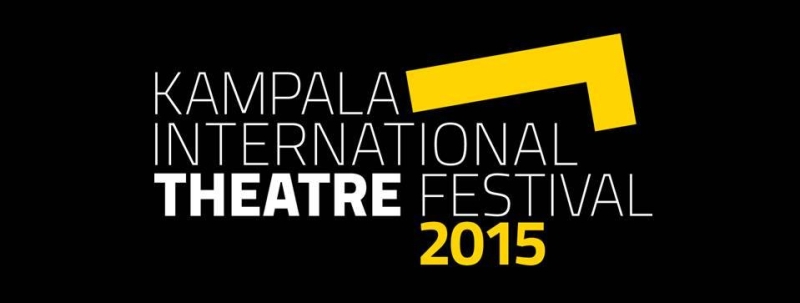 RELATED: Consider Customs Charges When Purchasing Gifts Online
RELATED: Consider Customs Charges When Purchasing Gifts Online  Sixty-eight of Africa’s ‘most provocative,
Sixty-eight of Africa’s ‘most provocative, 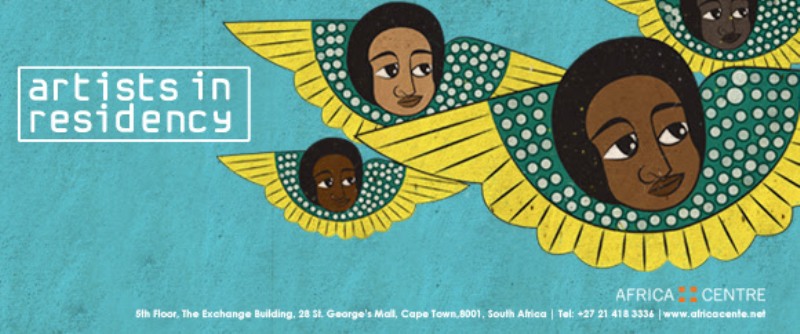 Music:
Music: The 2015 edition of AIR, Africa Centre says, is held in partnership with eight residencies across the globe. They include Bundanon Trust (Australia); Fountainhead (USA); Instituto Sacatar (Brazil); JIWAR Creation & Society (Spain); Khoj International Artists’ Association (India); Kuona Trust Arts Centre (Kenya); Nafasi Arts Space (Tanzania); and The Rockefeller Foundation Bellagio Center (Italy).
The 2015 edition of AIR, Africa Centre says, is held in partnership with eight residencies across the globe. They include Bundanon Trust (Australia); Fountainhead (USA); Instituto Sacatar (Brazil); JIWAR Creation & Society (Spain); Khoj International Artists’ Association (India); Kuona Trust Arts Centre (Kenya); Nafasi Arts Space (Tanzania); and The Rockefeller Foundation Bellagio Center (Italy). A two-day pilot programme aimed at developing both the
A two-day pilot programme aimed at developing both the  The event was seen as a ground-breaking initiative as it was supported by local resources from Banana Hill Art Gallery, Bonzo Art Gallery, Kenice Investment, and Mugwe Manga.
The event was seen as a ground-breaking initiative as it was supported by local resources from Banana Hill Art Gallery, Bonzo Art Gallery, Kenice Investment, and Mugwe Manga. “Work collectively. Form associations. Support one another,” Mugwe Manga advised, saying this could facilitate easier commissioning of work and place more money in the pockets of artists at the grassroots.
“Work collectively. Form associations. Support one another,” Mugwe Manga advised, saying this could facilitate easier commissioning of work and place more money in the pockets of artists at the grassroots. The gathered artists expressed their frustrations on issues such as the lack of a national art gallery, the duration of exhibitions at Nairobi National Museum (NNM) as being too long for any one single artist and thus denying many more of the opportunity to showcase their work, and that NNM took way too long to pay any artist whose works had been sold during any exhibition it hosts.
The gathered artists expressed their frustrations on issues such as the lack of a national art gallery, the duration of exhibitions at Nairobi National Museum (NNM) as being too long for any one single artist and thus denying many more of the opportunity to showcase their work, and that NNM took way too long to pay any artist whose works had been sold during any exhibition it hosts. The two day workshop was graced by three generations of fine artists in Kenya with the aim of bridging the gap among these artists by giving them a platform to work together, share experiences and ideas to help develop the art sector of the country.
The two day workshop was graced by three generations of fine artists in Kenya with the aim of bridging the gap among these artists by giving them a platform to work together, share experiences and ideas to help develop the art sector of the country. As our team of curious writers, videographers, critics,
As our team of curious writers, videographers, critics, 


 “I plan to turn this property into a museum of Akamba artifacts and college of creative writing,” he reiterates.
“I plan to turn this property into a museum of Akamba artifacts and college of creative writing,” he reiterates.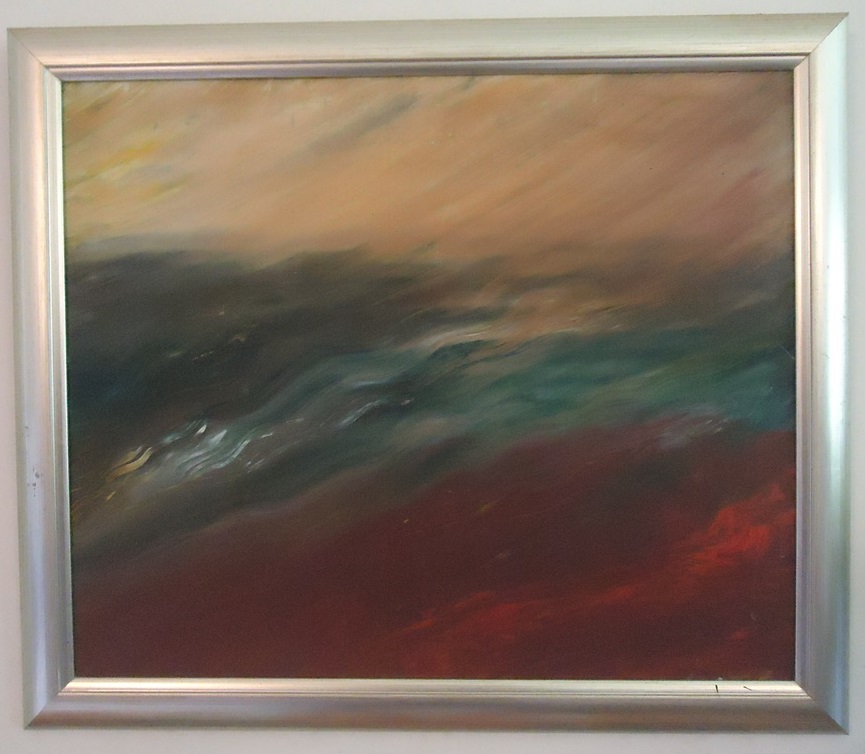
 It may be a long holiday in Nairobi; many city dwellers are away till after New Year’s Day. But that does not mean the
It may be a long holiday in Nairobi; many city dwellers are away till after New Year’s Day. But that does not mean the 
 Children and youth in
Children and youth in 
 How does it feel like to be a
How does it feel like to be a 
 Estabrak Al-Ansari, a former refugee from Iraq, was raised in London. She is a visual artist and filmmaker. She has exhibited in renowned galleries in Britain, winning a prize for her underwater photographic series, ‘Omanius Under Water.’ Her work examines the relationship between the body, the self, dress, movement, conformity, and the taboo concepts of sexuality, privilege, oppression, power, and understanding.
Estabrak Al-Ansari, a former refugee from Iraq, was raised in London. She is a visual artist and filmmaker. She has exhibited in renowned galleries in Britain, winning a prize for her underwater photographic series, ‘Omanius Under Water.’ Her work examines the relationship between the body, the self, dress, movement, conformity, and the taboo concepts of sexuality, privilege, oppression, power, and understanding.
 Works by more than 20 contemporary American and Portuguese artists will be on display January 21-February 19, 2016 in Mississippi State’s
Works by more than 20 contemporary American and Portuguese artists will be on display January 21-February 19, 2016 in Mississippi State’s 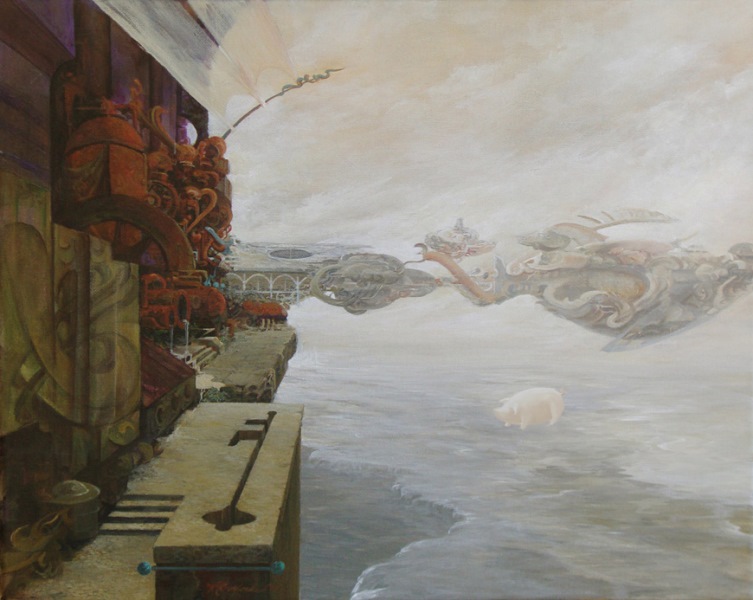
 An exhibition that explores the possibility of artists,
An exhibition that explores the possibility of artists, 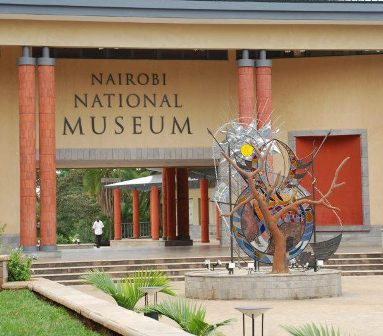 “In exhibiting the remnants of these interventions here,” say co-curators Neo Sinixolo Musangi and Joost Fontein, “we seek to reflect on how the traces of events outlive their particular moments, mirroring how our approach emphasises process than product, emergence rather than finality, the subjunctive rather than the conditional, and the possible rather than the certain.”
“In exhibiting the remnants of these interventions here,” say co-curators Neo Sinixolo Musangi and Joost Fontein, “we seek to reflect on how the traces of events outlive their particular moments, mirroring how our approach emphasises process than product, emergence rather than finality, the subjunctive rather than the conditional, and the possible rather than the certain.”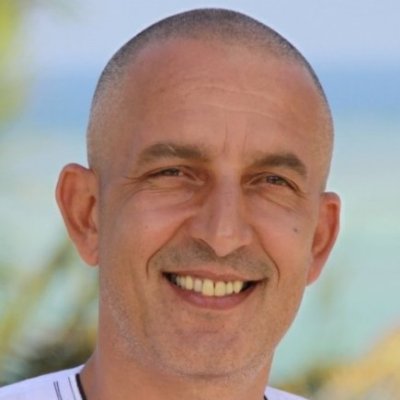 South Africa’s Mother City, Cape Town, shall not host its annual
South Africa’s Mother City, Cape Town, shall not host its annual 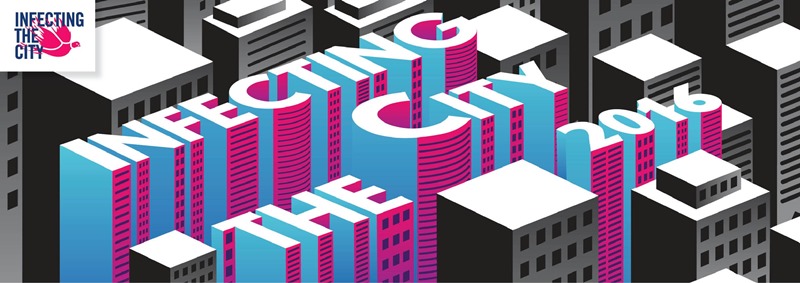 The plight of Infecting the City festival mirrors that of many donor-funded creative and cultural events across Africa. From South Africa in the south to Somalia in the east; and from Senegal in the west to Morocco and Tunisia to the north; and all the other places in between, creative and cultural initiatives that depend on ‘donors’ are in trouble over ‘lack of funds’.
The plight of Infecting the City festival mirrors that of many donor-funded creative and cultural events across Africa. From South Africa in the south to Somalia in the east; and from Senegal in the west to Morocco and Tunisia to the north; and all the other places in between, creative and cultural initiatives that depend on ‘donors’ are in trouble over ‘lack of funds’.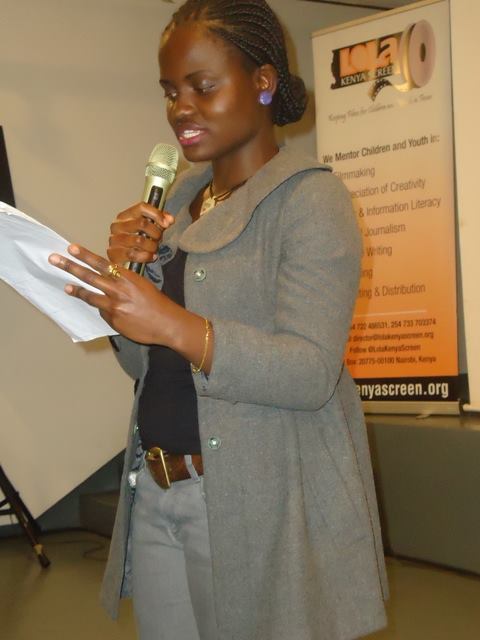 The not-for-profit organisation began its austerity measures by focusing on its core programmes—weekly school outreach, fortnightly mobile cinema, monthly film forum, quarterly internship, annual festival—while freezing staff allowances (not salaries), reducing the number of staff and then stopping staff allowances altogether. While some staff members left, this enabled LKS to remain alive for a while.
The not-for-profit organisation began its austerity measures by focusing on its core programmes—weekly school outreach, fortnightly mobile cinema, monthly film forum, quarterly internship, annual festival—while freezing staff allowances (not salaries), reducing the number of staff and then stopping staff allowances altogether. While some staff members left, this enabled LKS to remain alive for a while. CFC says its ‘core mandate’ was “to promote Cape Town and the Western Cape for local and international filming” and that this role was served “through relationships with the Department of Trade and Industry, the International Emmys, the Association of Film Commissioners International (AFCI), the South African Consulates in various territories, the Department of Home Affairs and the film industry.”
CFC says its ‘core mandate’ was “to promote Cape Town and the Western Cape for local and international filming” and that this role was served “through relationships with the Department of Trade and Industry, the International Emmys, the Association of Film Commissioners International (AFCI), the South African Consulates in various territories, the Department of Home Affairs and the film industry.” Winners of the
Winners of the  The artists selected for AIR 2015 are:
The artists selected for AIR 2015 are: AC says “Artists selected for residencies at The Rockefeller Foundation Bellagio Center will be announced in April 2016.” It says it “will be revealing more about these artists, including their residency proposals” on its website over the next fortnight.
AC says “Artists selected for residencies at The Rockefeller Foundation Bellagio Center will be announced in April 2016.” It says it “will be revealing more about these artists, including their residency proposals” on its website over the next fortnight. Africa’s amusement, entertainment and retail industry could benefit immensely by participating in
Africa’s amusement, entertainment and retail industry could benefit immensely by participating in  Analysts say Africa, a US$2 trillion economy with six out of ten fastest growing economies globally, could benefit from DEAL that is touted as being the largest amusement and entertainment exhibition in the Middle East and Africa region.
Analysts say Africa, a US$2 trillion economy with six out of ten fastest growing economies globally, could benefit from DEAL that is touted as being the largest amusement and entertainment exhibition in the Middle East and Africa region. DEAL 2016 organisers say the show shall “unveil state-of-the-art innovations”. They further predict the trade show shall grow from 35% in 2015 to 40% in 2016 as African participation “grow exponentially” from 12% in the previous year due to what they describe as “rapid transformation of the African theme parks and amusement sector.”
DEAL 2016 organisers say the show shall “unveil state-of-the-art innovations”. They further predict the trade show shall grow from 35% in 2015 to 40% in 2016 as African participation “grow exponentially” from 12% in the previous year due to what they describe as “rapid transformation of the African theme parks and amusement sector.”
 Having studied painting at the age of 16, Onyango developed a vocabulary of “photo pictures” in his mind to which he still refers in his recent paintings. He met his European girlfriend, a voluptuous Italian woman named Drosie while working as a young artist; he produced his most famous series of works on their brief love affair. The paintings are snapshots or a slice of life during his more flamboyant days.
Having studied painting at the age of 16, Onyango developed a vocabulary of “photo pictures” in his mind to which he still refers in his recent paintings. He met his European girlfriend, a voluptuous Italian woman named Drosie while working as a young artist; he produced his most famous series of works on their brief love affair. The paintings are snapshots or a slice of life during his more flamboyant days. A leading promoter of
A leading promoter of  The aim of OYASAF being to promote awareness and appreciation of African art, the not-for-profit oganisation stocks a large collection of paintings and sculptures, covering traditional, neo-traditional, modern and contemporary bronze, stone, wood, metal, glass fibre, recycled material, textile and photographs of Nigeria’s fast disappearing cultural festivals.”
The aim of OYASAF being to promote awareness and appreciation of African art, the not-for-profit oganisation stocks a large collection of paintings and sculptures, covering traditional, neo-traditional, modern and contemporary bronze, stone, wood, metal, glass fibre, recycled material, textile and photographs of Nigeria’s fast disappearing cultural festivals.”
 Gatundu-Galavu says a gala in honour of the late Maathai will be graced by Margaret Kenyatta, the wife of Kenya’s President, Uhuru Kenyatta.
Gatundu-Galavu says a gala in honour of the late Maathai will be graced by Margaret Kenyatta, the wife of Kenya’s President, Uhuru Kenyatta.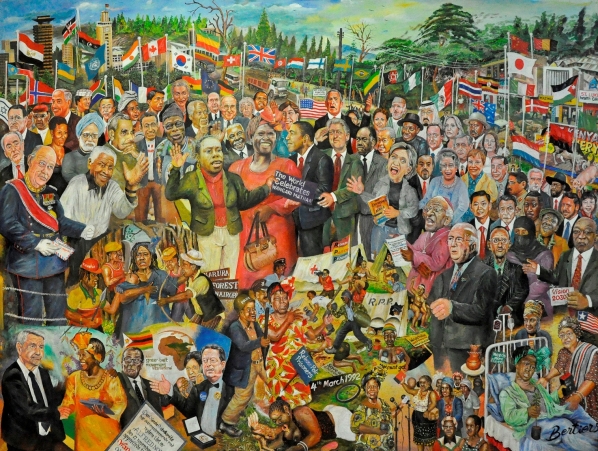 Busara invites artists from the Middle East and Indian Ocean regions to apply for consideration.
Busara invites artists from the Middle East and Indian Ocean regions to apply for consideration.
 Meanwhile, the countdown to the announcement of the winner of the Astrid Lindgren Memorial Award (ALMA) for children and youth is on.
Meanwhile, the countdown to the announcement of the winner of the Astrid Lindgren Memorial Award (ALMA) for children and youth is on.
 Two of the shows–Who I Am Who We Are; and Celebrating Women with Art–end on March 28 and 31, respectively. So it makes sense to view them during this Easter weekend.
Two of the shows–Who I Am Who We Are; and Celebrating Women with Art–end on March 28 and 31, respectively. So it makes sense to view them during this Easter weekend. The address of the event, to be held 6:00-8:00 PM, is 2920 M Street, NW, Georgetown, Washington, DC, USA.
The address of the event, to be held 6:00-8:00 PM, is 2920 M Street, NW, Georgetown, Washington, DC, USA. She fled to the British Kenya Colony to escape war in Europe, not to look for a career or status. But her work in the fields of art, culture and conservation has turned her into an icon, a legend around whom
She fled to the British Kenya Colony to escape war in Europe, not to look for a career or status. But her work in the fields of art, culture and conservation has turned her into an icon, a legend around whom  Joy Adamson may sound very much like a mythical figure that only exists in one’s mind. But her paintings of plants, people and landscapes put her in the realm of history: she was born in Czech Republic and migrated to Kenya at the age of 27. Here, she lived, loved, worked and died some 43 years later. She lives on. Through her paintings, line drawings, books and ideas.
Joy Adamson may sound very much like a mythical figure that only exists in one’s mind. But her paintings of plants, people and landscapes put her in the realm of history: she was born in Czech Republic and migrated to Kenya at the age of 27. Here, she lived, loved, worked and died some 43 years later. She lives on. Through her paintings, line drawings, books and ideas. RELATED:
RELATED:
 We, from Kenya, Uganda, Tanzania, Rwanda, Burundi, Nigeria and United States of America are ecstatic as we go through our full day’s programme at NNM, the flagship of the National Museums of Kenya (NMK).
We, from Kenya, Uganda, Tanzania, Rwanda, Burundi, Nigeria and United States of America are ecstatic as we go through our full day’s programme at NNM, the flagship of the National Museums of Kenya (NMK). Before heading out for lunch at Nairobi Safari Club, our home for the next six days, we have to go through the entire museum. We view displays of slave raiders, what Kenyans went through during colonialism and even the evolution of humanity. We also view contemporary art and listen to talks about using art for conservation.
Before heading out for lunch at Nairobi Safari Club, our home for the next six days, we have to go through the entire museum. We view displays of slave raiders, what Kenyans went through during colonialism and even the evolution of humanity. We also view contemporary art and listen to talks about using art for conservation. I’ve been struggling to find a way to summarise this project. The best I’ve managed so far is ‘radically inventive mash-up of photography, tech,
I’ve been struggling to find a way to summarise this project. The best I’ve managed so far is ‘radically inventive mash-up of photography, tech,  It’s an exciting alternative to the traditional gallery set-up, and an excellent example of the innovative ways the digital world can be used to enhance the physical one.
It’s an exciting alternative to the traditional gallery set-up, and an excellent example of the innovative ways the digital world can be used to enhance the physical one. ‘Another Space & Time’ takes viewers on a journey through the American desert in search of the meaning of life, via 15 locations in East London. The Space Explorer app will guide explorers along a route from Hackney Central to Regent’s Canal, with 15 billboard-sized artworks hidden along the way. Once in the GPS zone of the artwork, the app immerses its users in a bespoke soundscape designed to complement and enhance the image, thus turning the untapped spaces of the neighbourhood into a four-dimensional outdoor gallery.
‘Another Space & Time’ takes viewers on a journey through the American desert in search of the meaning of life, via 15 locations in East London. The Space Explorer app will guide explorers along a route from Hackney Central to Regent’s Canal, with 15 billboard-sized artworks hidden along the way. Once in the GPS zone of the artwork, the app immerses its users in a bespoke soundscape designed to complement and enhance the image, thus turning the untapped spaces of the neighbourhood into a four-dimensional outdoor gallery. The project is run with the support of Hackney Council as part of its regeneration scheme, and is accompanied by the free Space Explorer magazine, available from cafés and shops along the route. The publication explores the story of the exhibition in depth and showcases up-and-coming photographic talent from the local VSCO community.
The project is run with the support of Hackney Council as part of its regeneration scheme, and is accompanied by the free Space Explorer magazine, available from cafés and shops along the route. The publication explores the story of the exhibition in depth and showcases up-and-coming photographic talent from the local VSCO community.








